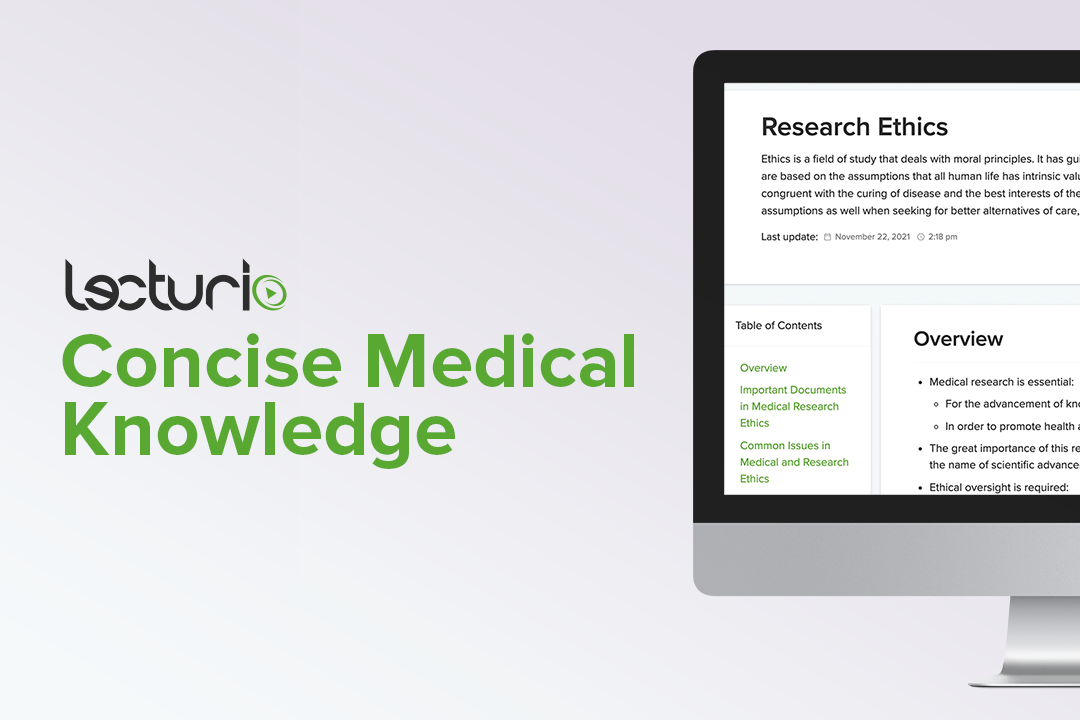Playlist
Show Playlist
Hide Playlist
Protecting the Rights and Interests of Human Research Participants
-
Slides Protecting the Rights and Interests of Human Research Participants.pdf
-
Download Lecture Overview
00:01 So the ultimate thing we need to think about as clinical investigators is protecting the rights and interests of subjects and they're going to be various ways that we need to think about that. 00:11 There are going to be some questions that depending on the kind of research you're doing, you need to answer and it's no clear guidance as to one way versus the other way. 00:21 So I'm just going to present them to you and figure out, you know, for particular research design, whether or not you would pursue these particular things. 00:31 So for instance, deciding whether to pay for study participation. 00:35 There might be reasons that you decide to pay research participants. 00:40 It might be an incentive to get them actually to recruit them into the study. 00:44 You might pay them to reimburse them or compensate them for any expenses that they've incurred as a result of their participation or the time or inconvenience that have been involved for them to be a research participant. 00:58 You have to decide, you know, whether you're going to pay a research subject if they are injured as a result of their participation in the study, there may be limited funding. 01:06 In the United States, for federally funded research, there may not be the funds to allow for payment if there's a research-related injury. 01:15 So you need to know whether or not you're going to have the ability to pay subjects if they are injured or pay for their medical care if they need additional medical care. 01:23 Another thing to consider when you're thinking about the rights and interests of research subjects is what do you do about incidental findings? So you might have your main study hypothesis and the questions you're answering about that. 01:35 But you learn additional information about the research subject over the course of the study, you know, another test that was done, that it's incidental to the main findings but might have bearing for the medical care of that research subject. 01:50 Is that something you're going to disclose to them or not? You'd have to make that clear in the informed consent process. 01:56 A classic example of this would be something like genetics research, you have, you know, particular genetics question that you're trying to answer. 02:04 But you incidentally, find out that there's lack of paternity that the person that the research subject always thought was their father, turns out not to be their biological father that, you know, because you've done the DNA analysis, you know, that someone else is the father. 02:18 Is that something you're going to disclose to the research subject or not? It has bearing on them as an individual but it does have bearing on whether they have to change their medical care. 02:30 Another one that you need to consider in terms of protecting rights and interests of subjects is going to be privacy. 02:35 So, you know, the general caveat is, you know, only collect the data necessary for answering the scientific aims of the research. 02:44 You don't want to ask about extraneous information because then you have to try to protect that extra information, make sure that nobody else has access to it, make sure it's not inadvertently released to other individuals. 02:56 The other way that privacy will play out is when it's stored tissue. 03:01 So pieces of a person's body is also an aspect of privacy. 03:06 So whether it's stored blood or stored tissue samples, what happens to that tissue sample in the future? How easily is it linked back to the individual? Does it have identifiers on it? That means that you need additional protections for privacy of that stored tissue. 03:25 Another one in terms of thinking about the rights and interests of subjects is going to be their welfare as they are a research participant. 03:33 So if something happens, you know, an adverse event occurs, are they informed about it, or you know, other research participants informed about it? Is there you know, an institutional review board where these adverse events get reported to? Is there an independent data safety and monitoring board that is looking at all of the data, looking for trends, seeing if there are adverse events and then maybe either changing the research design, maybe even stopping the study if it's too harmful? All of these things have to be figured out in terms of the welfare of the research participant.
About the Lecture
The lecture Protecting the Rights and Interests of Human Research Participants by Mark Hughes, MD, MA is from the course Clinical Research Ethics.
Included Quiz Questions
How should investigators protect patient privacy?
- Collect only necessary data
- Disregard tissue linked back to the individual
- Provide incentives for recruitment
- Ask for payment from the patient
- Collect as much data as possible
What is one way to monitor the welfare of participants?
- Report adverse events
- Collect as much data as possible
- Ask for payment from the patient
- Collect only necessary data
- Collect tissue from the individual
Customer reviews
5,0 of 5 stars
| 5 Stars |
|
5 |
| 4 Stars |
|
0 |
| 3 Stars |
|
0 |
| 2 Stars |
|
0 |
| 1 Star |
|
0 |





